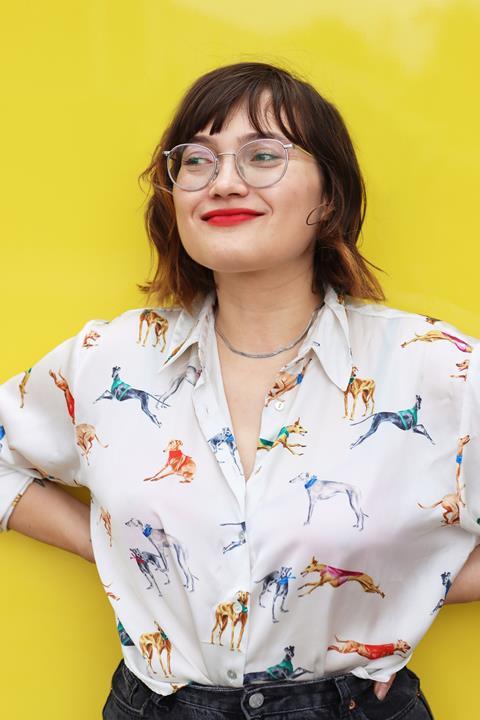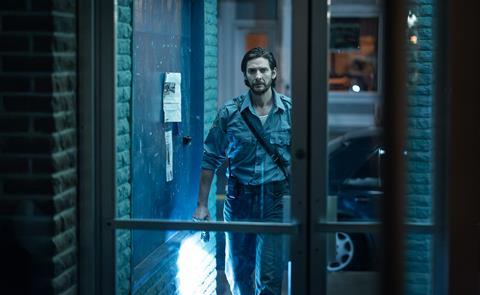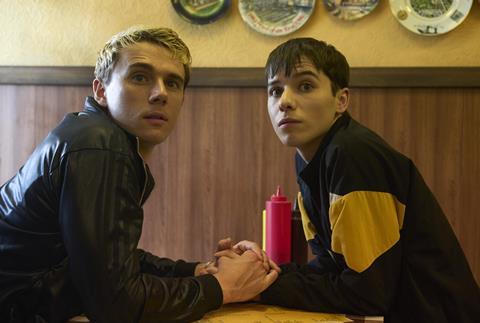Head of screen Anna Bogutskaya taking ‘truffle pig’ approach to ‘genre-agnostic’ schedule
The European debut of the iconic South by Southwest (SXSW) in London next week aims to illustrate the “porous lines” that now exist between creative industries, according to the event’s head of screen Anna Bogutskaya.
Speaking to Broadcast ahead of the inaugural SXSW London, which begins on 2 June, Bogutskaya said her guiding light is “convergence”, with the programme aiming to underscore “the ways that creatively, and as industries, we intersect”.
“I am led by this idea of the melding of worlds, of the intersections of creative worlds, of ways that filmmakers, writers, showrunners make films and create shows,” she said.

“What’s exciting is to discover artists or storytellers who move between all of these different worlds – whether it’s an author who is now writing a series or someone who has only worked in music videos who’s now making a narrative or documentary feature.
“Increasingly there’s such porous lines for us as audiences, but also massively so from an industry point of view.”
The six-day event will encompass keynote sessions and conversations, panel discussions and screenings spanning the TV, film, art, music and tech industries. Highlights from the TV conference strand include a discussion with Banijay chief exec Marco Bassetti, a showrunner panel with Industry creators Mickey Down and Konrad Kay, and a ‘what makes compelling TV’ session with Universal International Studios’ president Beatrice Springborn, Working Title’s drama chief Surian Fletcher-Jones, Heyday Television’s head of development Sue Gibbs and Carnival Films’ creative director Noemi Spanos.

On the screenings side, MGM+ sci-fi horror original The Institute, based on the novel by Stephen King, is having its world premiere at SXSW, while the BBC’s forthcoming Paris Lees memoir adaptation What It Feels Like for a Girl is having its UK premiere. The latter, Bogutskaya said, exemplified her intent on platforming “new talent who are coming from different pathways” to create something for screen.
Bogutskaya emphasised the approach to sessions and screenings is “genre-agnostic”, noting that she considers “narrative, non-fiction and animated work with the same lens”.
“We’re putting them in the same sections, we’re putting them in competition together, as opposed to: ‘here’s an animation bucket, here’s the documentary bucket, here’s a narrative bucket’,” she explained.
“I like to use this metaphor of the truffle pigs. I have a very truffle pig approach to programming. So, instead of having specific themes I’m trying to fit films and series into, I like to see what is happening [in the industry], what are people making?
“What are they interested in? What is exciting and new? And then I let the work speak and create those through lines.”
She noted, however, that she wanted to create an “extremely international” line-up, to capture the likely make-up of attendees, but also the cosmopolitan nature of London.
“We’ll be showcasing how international filmmaking works across genres,” she added. “So, we might have horror films from Poland and Kazakhstan or documentaries from Spain and Italy and Germany and the UK. But also, those countries that genres are maybe not traditionally associated with in international filmmaking: police procedurals from Kyrgyzstan or an action film from Belgium.”

The London iteration is only the second place the SXSW brand has travelled outside its Austin origins, alongside its international sibling SXSW Sydney, which Bogutskaya hopes to emulate after it celebrated its two-year anniversary in October last year.
Bogutskaya, a critic, author and film programmer, has curated for the BFI, Edinburgh International Film Festival and Sheffield DocFest previously, but acknowledged uprooting an iconic festival to make its European debut is a challenge. She also hopes it can be complementary to the existing cadre of events.
“It’s a really daunting task to build anything from scratch and, from the screen side, I’ve never really been interested in competing with [other festivals] but adding to the landscape,” she added. “We want that unpredictability of the way people experience SXSW.
“That’s integral to the brand and to its reputation and that’s what we’re taking. You get to make up your own festival. But it’s always a two-way conversation and a two-way street: making sure we’re the right platform for the work to be able to find the right people who will discover it and enjoy it. It is a huge responsibility that I never take lightly.”








No comments yet